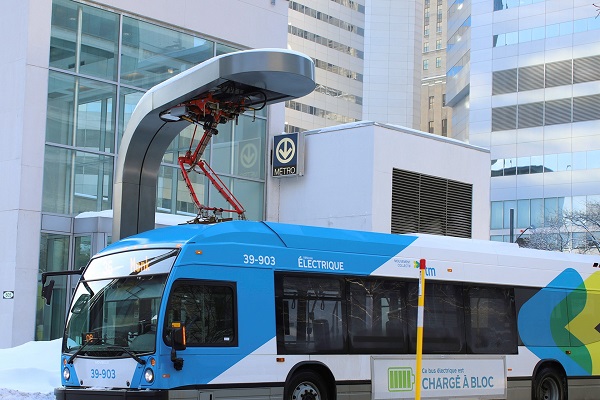BY Eric Beaudoin & Evan Jakab
Eleven people wait patiently at a Baie d’Urfé stop for a bus to bring them downtown. There is the 211, which takes commuters to downtown Montreal in 50 minutes, or the 405 Express, which takes 40 minutes.
The wait is infuriating for commuter Gilles Giraud.
“It would take me 20 to 30 minutes to get into town if I took a car, but traffic and construction makes me not want to waste gas,” says Giraud. “If the service was faster and more consistent, I would have no complaints. I honestly couldn’t care less about new buses. I would take better service over gimmicks any day”.
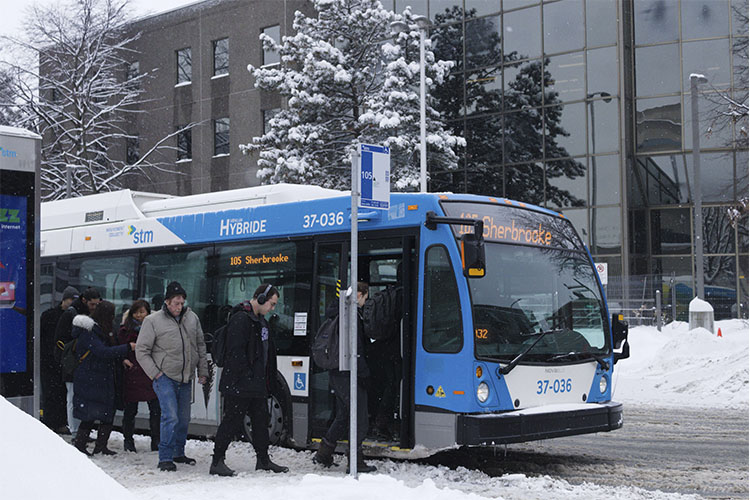
A long line of commuters board the 105 bus leaving from Vendôme station in Côte-des-Neiges–Notre-Dame-de-Grâce in Montreal. Photo by Evan Jakab.
A poll of public transit commuters conducted by The City found that their biggest concern is efficiency. Most weren’t worried about the type of bus they were riding, but instead, how often the buses run.
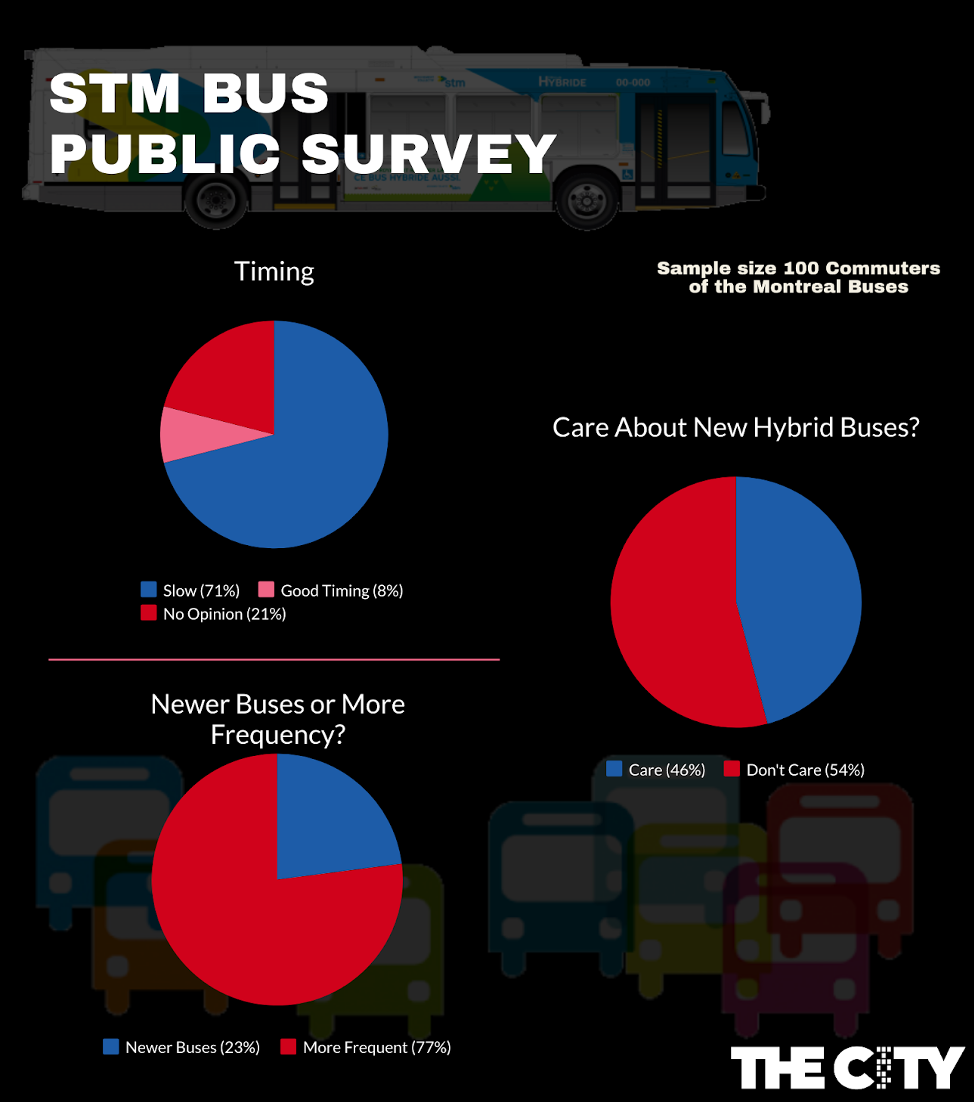
A poll measuring the interest of Montreal commuters in new buses. Infographic by Eric Beaudoin.
However, Montreal’s priority isn’t buying more buses, but greener buses. Half of the fleet of diesel buses are being replaced by 830 hybrids at a cost of about $1 billion.
The plan gets confusing because the new hybrid buses will also be phased out, replaced by a fully-electric fleet.
“This might be a conundrum for the Plante administration,” says Meghan Joy, an associate professor of political science at Concordia University, who focuses her research on urban politics, policy and theory. “I think it’s a minor concern for people. For many folks it is a concern but I think there’s an understanding that ‘Hey I’m already taking public transit anyways rather than a car, so I’m already doing a good thing.’”
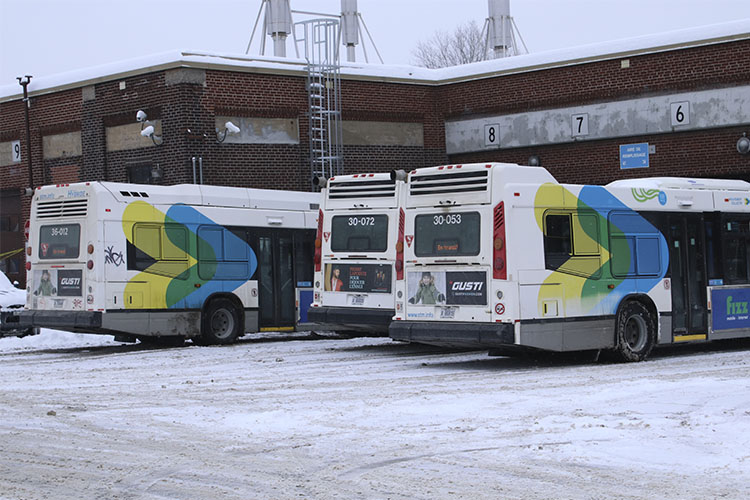
A pair of diesel buses parked next to a hybrid-powertrain counterpart at an STM garage on Fullum street in Mount Royal in Montreal. Photo by Evan Jakab.
Montreal puts 1,800 buses on the road every day. Toronto has similar numbers, whereas New York City puts more than 5,000 buses on the road.
Back in 2013, the City of New York transit authority deemed that hybrid buses were becoming worse for the environment compared to the normal diesel models. The large fleet was letting off more CO2 due to needed repairs and unreliability. Their response was to replace the hybrid engines with diesel engines.
The efficiency of the hybrid-powered buses aren’t quite as drastic as the city had originally hoped. They expected a 30 per cent drop both in fuel savings and greenhouse gas emissions. But the actual numbers for both vary between eight and 30 per cent, depending on weather conditions.
The new electric buses will have a diesel reserve tank for heating during the winter. Despite the full electric model being better for the environment, the STM buses will still utilize diesel fuel to some capacity.
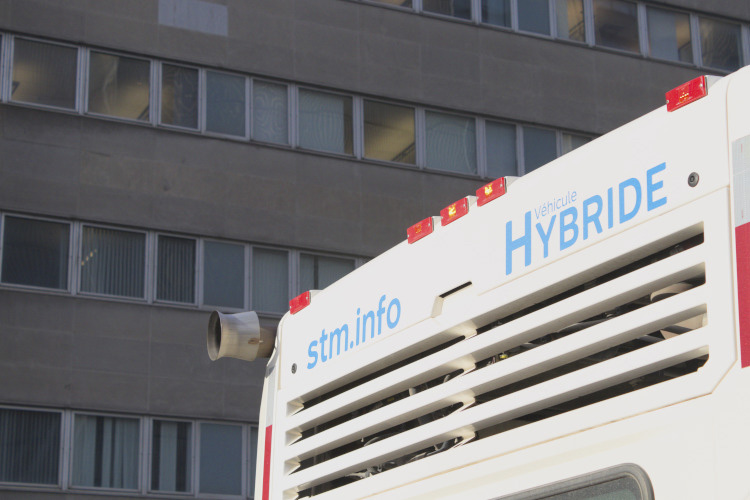
A hybrid-powertrain bus parked on De la Gauchetiere street in Montreal. Photo by Evan Jakab.
“When it’s cold, the battery will carry you much less,” says Alex De Visscher, chair of the Concordia’s chemical and materials department. “On a cold winter day, you get only about 70 per cent of the full capacity of your battery. You don’t want to charge 100 per cent or discharge it to 0 per cent, so in practice, in winter you really only have about 50 per cent.”
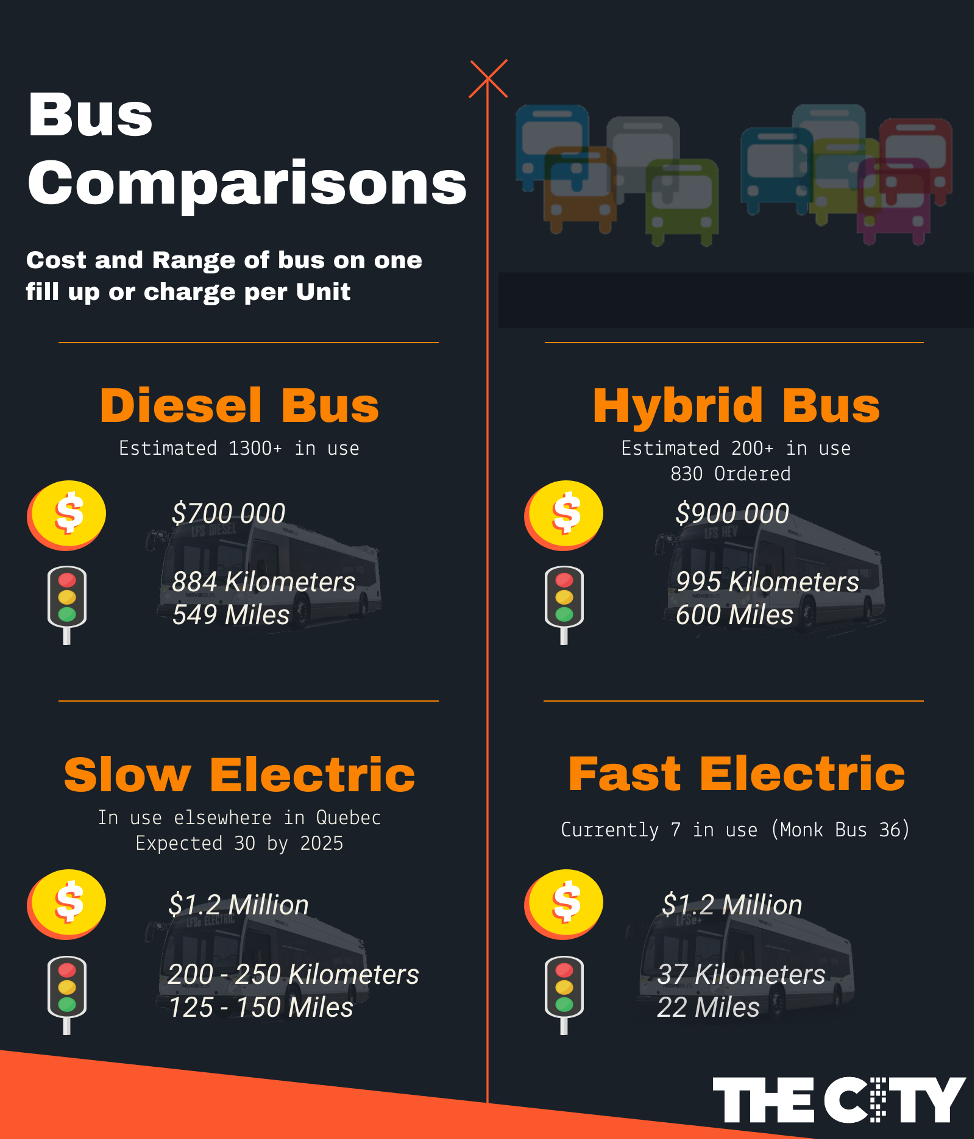
The cost and efficiency of different types of buses. Infographic by Eric Beaudoin.
The future for electric buses in Montreal will be costly. Currently only seven out of the over 1,800 buses are fully electric, but they come with a price tag of $1.2 million for each full electric unit. The charging stations themselves cost almost $800,000 and this is all to have a bus with a range of 37 kilometers.
Only the 36 bus along Monk Boulevard utilizes these buses due to the route being just 11 km long.
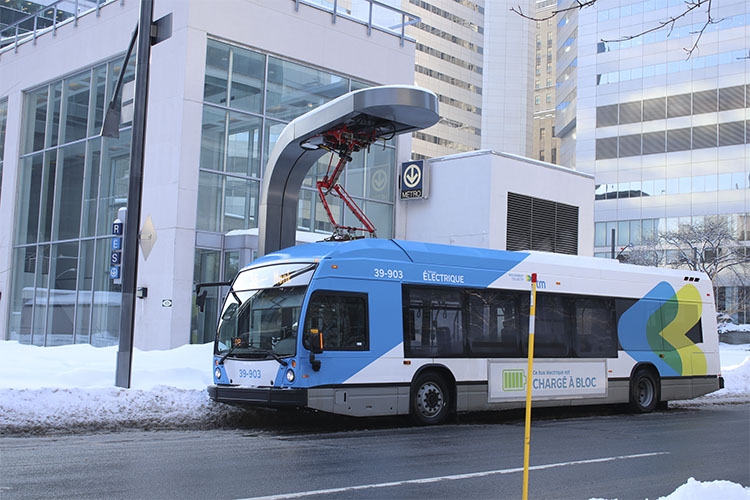
An electric bus parked at its charging gantry on Square Victoria street in Montreal. Photo by Evan Jakab.
The plan for Montreal is to be full electric by 2025 and to not have any diesel related purchases be made after that time. This gives the city a five-year window to put the hybrids on the road and head towards a fully electric fleet.
The City takes a brief look at the science behind electric buses. Video by Evan Jakab.
